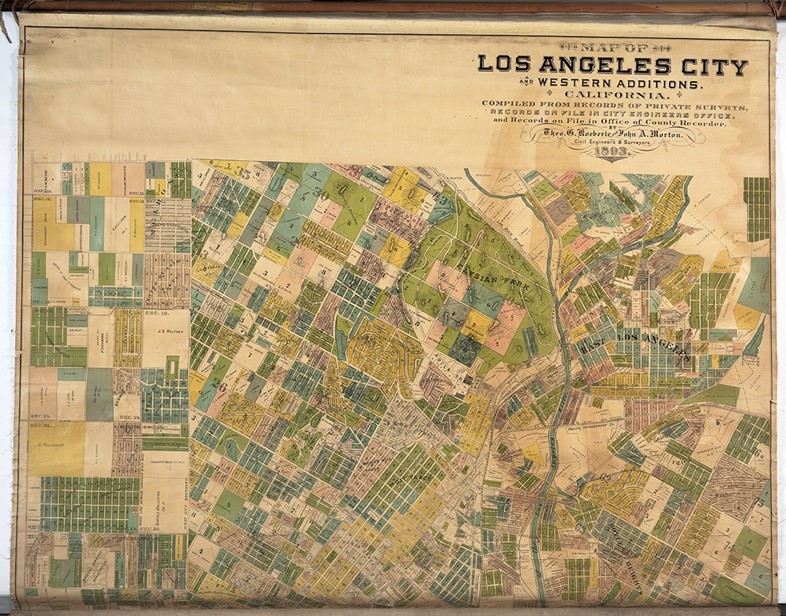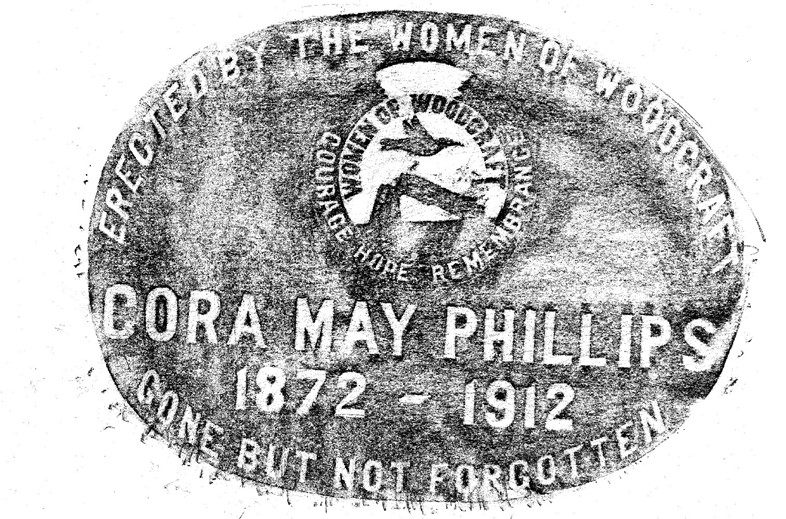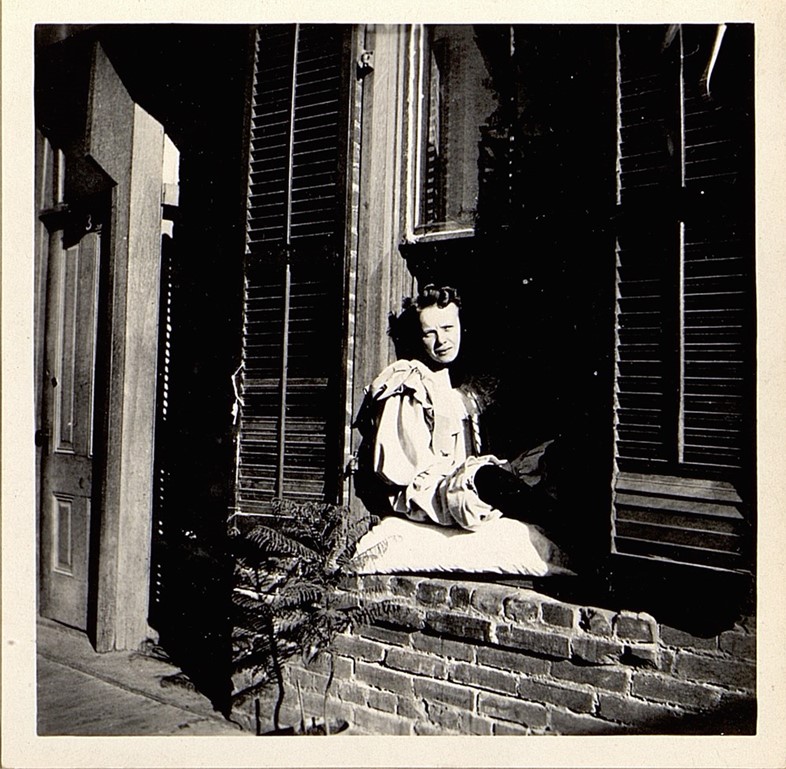The esteemed writer and director presents Sporting Guide: a thrilling collection of fictional stories about L.A.'s sex trade in the 19th century
On first glance, you'd be forgiven for mistaking Liz Goldwyn's Sporting Guide for a traditional British mens leisurebook – with its firm, blood-red, leather-bound cover, weighty pages and elegant gold lettering that bestows a heightened sense of importance. Which, affirms the esteemed writer and director, was precisely the intention: "I wanted the book to be a cross between an important secret diary, an erotic journal and a historic masculine guide for hunting or even prostitution, which was actually once considered a sport."
Despite its gallant exterior, the novel's interior takes a thoroughly female stance – offering a rich and racy series of interlinking, fictional stories about women – from madams to prostitutes – caught up in L.A.'s powerful sex trade during the 1890s, based on extensive archival research that Goldwyn conducted at The Huntington Library in California. "I wanted to shine a light on women from a lost era," she reveals, adding, "those who gave their lives and bodies to sex work, and were shrunk by society. I wanted to give them a voice." Here, Goldwyn gives AnOther an insight into the concept of the novel and her heightened fascination with sexuality...

On the inspiration behind the novel…
"I wanted to shed light on this lost era and on the women whose stories were lost in time. Women who could have been buried in a potter’s field, didn’t have families or died of drug overdoses in brothels. Women who gave their lives and their bodies to sex work, and were shrunk by society. So it was their voices that I wanted to give a light to."
On her heightened fascination with sexuality...
"Prostitution and courtesans were actually a subject matter that I have been interested in from a very young age, well before I began my work research in Burlesque Queens. Several of the characters, from Cora Phillips to Mr. Axe were in my head while I was finishing up Pretty Things. So I knew that my next project was going to be fiction, and I knew it was going to be set in a world of prostitution. There was some overlap while researching Pretty Things, with the sex trade and the sex industry, and it just felt like a natural step."
On her creative process…
"In terms of genre, a lot of books inspired me, from Luc Sante’s Low Life, and Jack Black’s You Can’t Win, to Felix Feneon’s book of like paragraph stories and Hemingway’s short story For Sale: Baby Shoes, Never Worn. I would say they are emotional snapshots. I devour books, but I've never really seen anything that had the structure that I wanted to do, so I felt slightly concerned at the beginning, but then I divorced myself from all that, and let myself be really free and creative, and stopped worrying about whether anyone would get it or like it. And I wrote the book longhand, across 26 separate notebooks, clipping in pictures and ephemera into the notebooks, so the book feels a little like a much more elegant version of these notebooks. That was my process of fiction."

On why her directing skills enhanced the novel's narrative...
"Directing is something that runs in my blood [Goldwyn's grandfather is feted filmmaker Samuel Goldwyn], so I’ve always seen this book in 3D, both in my dreams and fantasies, but also the way in which I visualised and created the narrative. I was looking for very specific details. I could imagine what the interiors looked like, what the women were wearing, how they styled their hair. I even did photo shoots, test photos with my friend [director] Gia Coppola almost ten years ago. I also made a film called Painted Lady with Jena Malone, and in it she is speaking text that comes from the book."
On the overarching theme of the book...
"I feel that this is best summarised in the book's foreword – that the human experience of love, sex, heartbreak, desire, grief, madness and drug addiction is the same in no matter what century we’re living in."
On her enduring love for Los Angeles…
"I’m such a California girl at heart. I love every aspect Los Angeles, the weather, the surf and skate culture, being in the ocean and the whole new age mentality, which actually emerged in L.A. during the 1890s. I still think that Los Angeles is a city that you have to discover, it’s not like London or New York or Paris, where you walk around and you engage with the streets. L.A. is vast, you have to drive and there are so many different sub-cultures. It's very desperate, so there’s a lot of in-between spaces, both in the community and in an artistic sense, and with its vibrant history. There are unique spaces that are just waiting to be discovered."
Sporting Guide by Liz Goldwyn is available now from Regan Arts.
